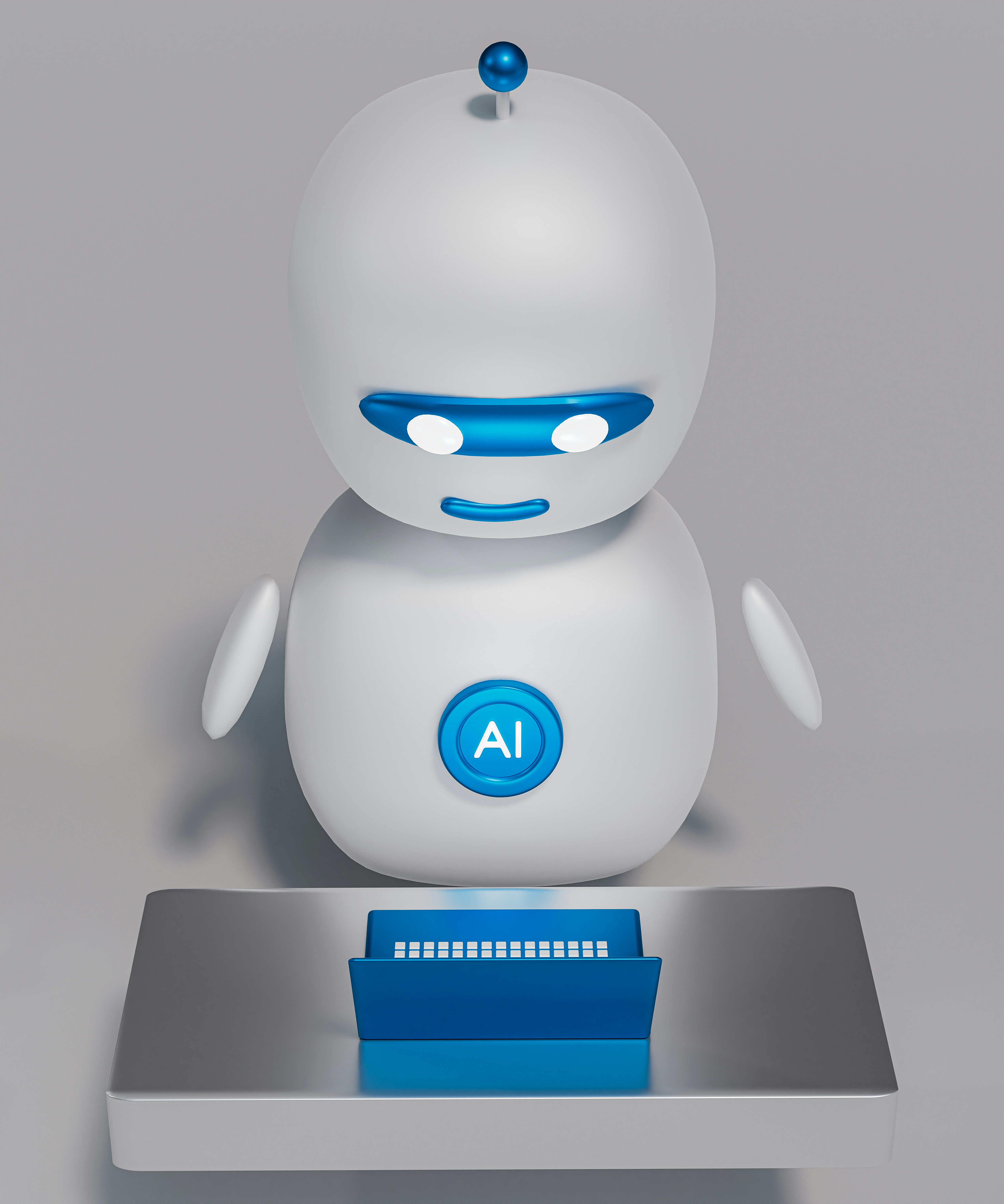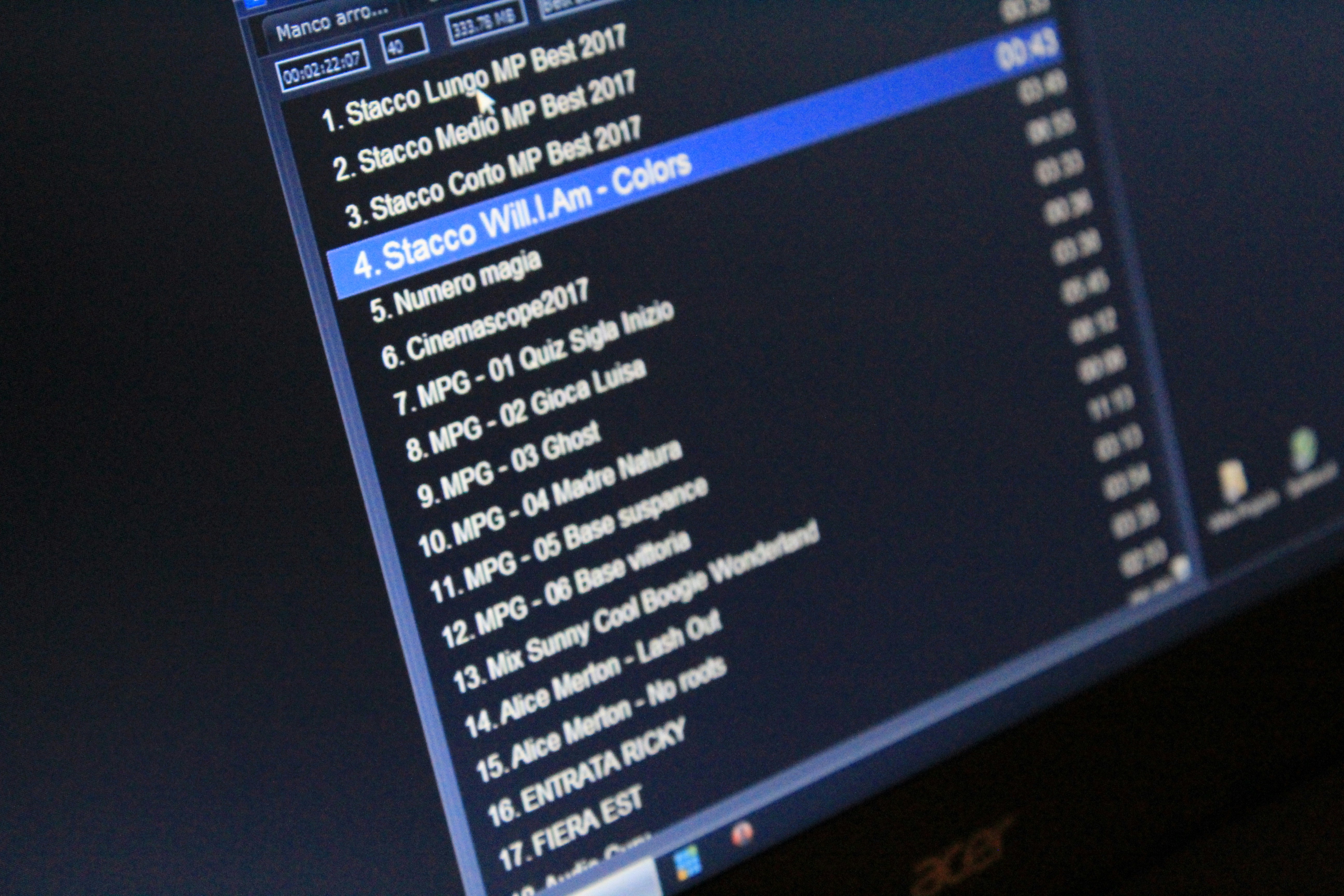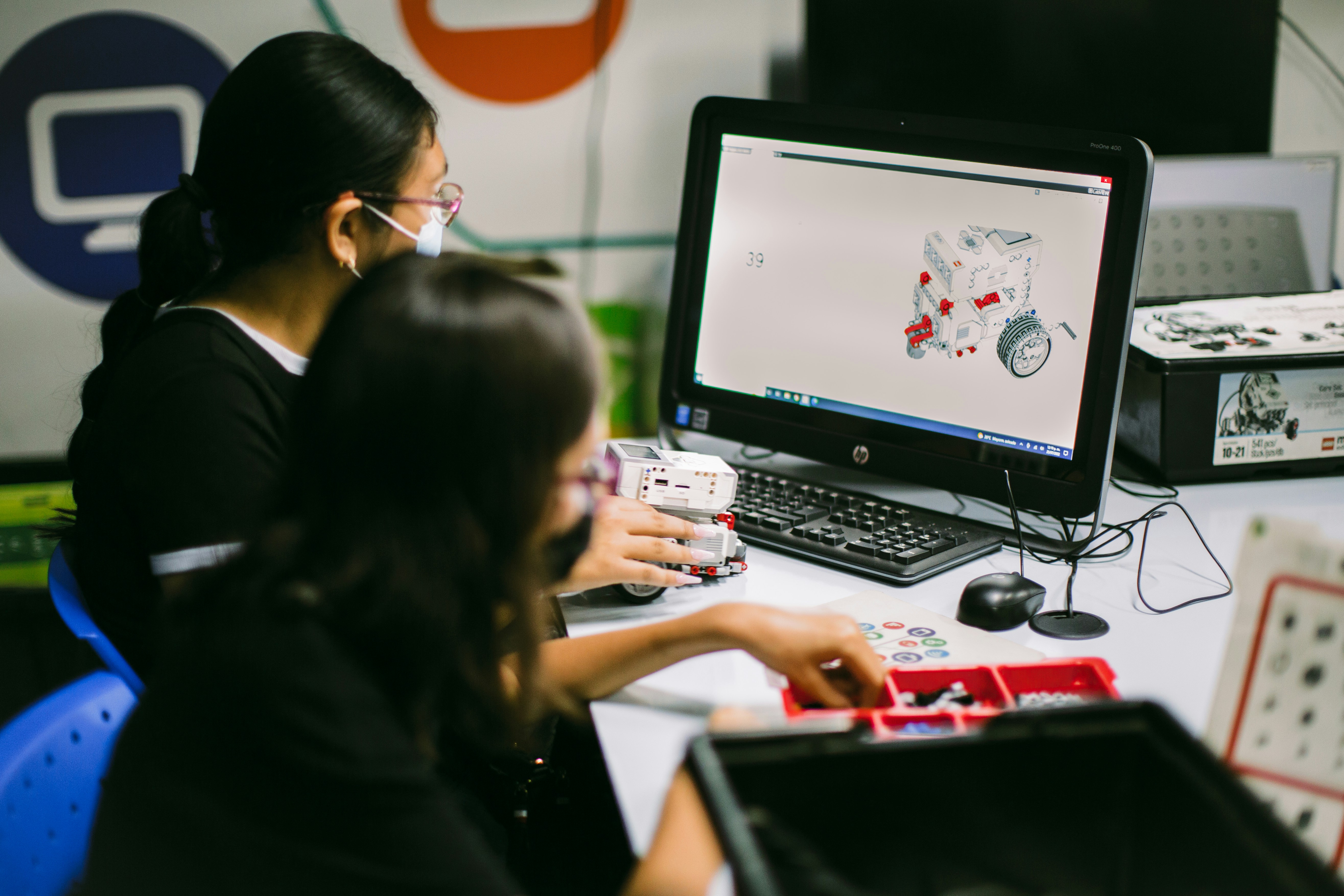❤️ Powerful Real Love Spells That Work
Attract true love, reunite with your partner, and strengthen relationships with proven magic spells.
Introduction to AI Code Assistants
As the landscape of software development continues to evolve, Artificial Intelligence (AI) code assistants have emerged as indispensable tools for developers. These sophisticated systems are designed to streamline the coding process, providing support that enhances productivity and minimizes the potential for errors. AI code assistants leverage advanced algorithms and machine learning to analyze code patterns, offering real-time suggestions and automations that aid in the overall development cycle.
The significance of AI code assistants in modern development cannot be overstated. By automating routine tasks and providing insightful feedback, these tools allow developers to focus more on higher-order problem-solving and creative aspects of coding rather than being bogged down by repetitive tasks. This not only accelerates the pace of software development but also improves the quality of the final product. In a world where software complexity is constantly increasing, AI code assistants serve as valuable allies, helping developers navigate through intricate coding challenges.
The evolution of AI in coding has been a remarkable journey. Initially, coding assistance was limited to basic syntax checking and simple code completion. However, as machine learning and AI technologies advanced, the capabilities of these tools expanded significantly. By 2025, AI code assistants are expected to offer features such as predictive coding, natural language processing, and intelligent debugging. These advancements enable the tools to understand context and adapt to the specific needs of a developer, making them more intuitive than ever before.
Moreover, the integration of AI in coding practices marks a paradigm shift in how software is developed. The accessibility of these innovative tools allows both novice and experienced programmers to enhance their coding skills and efficiency. As we move forward, the reliance on AI code assistants is poised to become a standard component of the developer’s toolkit, fundamentally transforming the coding experience and shaping the future of software development.
GitHub Copilot
GitHub Copilot has emerged as a leading AI code assistant among developers in 2025, thanks to its advanced features and functionalities. This innovative tool leverages machine learning algorithms, specifically those derived from OpenAI’s Codex, to provide context-aware code suggestions and snippets as developers write code. By analyzing the codebase and understanding the context in which a developer is working, Copilot can offer relevant recommendations that significantly streamline the development process.
One of the standout features of GitHub Copilot is its ability to assist with various programming languages and frameworks. For instance, when working with JavaScript, Copilot can suggest entire functions or even complex logic using only a few lines of comment as context. Similarly, for Python developers, the tool can generate data manipulation scripts swiftly, saving substantial time when dealing with data-intensive tasks. This adaptability across languages positions GitHub Copilot as a versatile solution for multi-language support and cross-framework development.
In addition to generating code snippets, Copilot provides valuable documentation and offers assistance in debugging code. By understanding the intricacies of both the developer’s existing code and broader documentation practices, it can deliver insights that help clarify function usage, library options, or syntax requirements. This capability not only aids developers in overcoming immediate coding hurdles but also enhances their learning curve by exposing them to best practices and optimized coding techniques.
Real-world examples highlight Copilot’s practical impact. For developers working on web applications using React.js, Copilot has improved productivity levels by reducing the time spent on boilerplate code generation. In the realm of data analysis, users working with R or Python have reported significant efficiency gains, as Copilot’s recommendations often incorporate industry-standard libraries and algorithms. Such transformative functionalities confirm GitHub Copilot’s status as a preferred AI code assistant in modern software development.
TabNine: A Comprehensive AI Code Completion Tool
In the rapidly evolving landscape of software development, TabNine stands out as a powerful AI-driven code completion tool that utilizes deep learning techniques to enhance the coding experience for developers. This innovative tool is designed to significantly improve both the speed and accuracy of code writing, providing users with intelligent suggestions that evolve over time based on their coding practices.
One of the key features of TabNine is its seamless integration with a wide array of integrated development environments (IDEs), such as Visual Studio Code, IntelliJ IDEA, and Atom. This flexibility allows developers to harness the tool’s capabilities regardless of their preferred coding environment, thereby facilitating a smoother transition to AI-assisted coding. Furthermore, TabNine supports various programming languages, including Python, JavaScript, Java, and many others, making it a versatile choice for developers working in diverse tech stacks.
💰 Powerful Spells for Wealth & Prosperity
Attract money, success, and financial abundance with real magic spells that bring results fast.
Customization options are another highlight of TabNine. Developers can tailor the tool’s suggestions to align with their specific coding standards or personal preferences, which enhances the overall coding experience. This level of personalization ensures that users receive relevant suggestions that not only boost their productivity but also maintain the quality and consistency of the code they produce.
User testimonials in 2025 reflect the widespread acclaim for TabNine’s effectiveness. Many developers have reported that incorporating this AI tool into their workflow has led to measurable improvements in coding efficiency and confidence. Compliments frequently highlight how TabNine encourages exploration of new coding patterns and techniques, pushing users to develop robust solutions without succumbing to the tedium of repetitive code writing. As a result, TabNine has become a vital asset in modern development environments, illustrating the profound impact of AI on the coding landscape in 2025.
OpenAI Codex
OpenAI Codex represents a significant advancement in the field of artificial intelligence, particularly in the domain of software development. As a sophisticated AI code assistant, Codex is designed to interpret natural language commands and convert them into executable code. With the ability to understand a variety of programming languages and contexts, Codex has quickly become a preferred tool for developers looking to enhance their coding efficiency.
One of the primary applications of OpenAI Codex is in automating repetitive tasks. Many developers often find themselves bogged down by routine coding duties, such as generating boilerplate code or performing systematic database queries. By leveraging Codex, programmers can input their commands in plain English, allowing the AI to generate relevant code snippets. This capability not only accelerates the development process but also frees developers to focus on more complex problems that require human creativity and critical thinking.
Moreover, OpenAI Codex plays a pivotal role in supporting novice programmers. It serves as a learning tool, enabling new developers to understand coding practices through practical examples generated from their queries. By converting natural language instructions into actionable code, Codex provides immediate feedback and elucidates programming concepts that may otherwise be bewildering to beginners. This application is particularly beneficial in educational settings, where students can experiment with different coding solutions and receive intelligent suggestions in real time.
Several successful implementations of Codex illustrate its transformative potential. Many organizations are integrating Codex into their development environments to improve productivity and expedite project timelines. Developers have reported substantial reductions in coding errors and improved collaboration among teams, as Codex facilitates quicker iterations and testing phases. The introduction of OpenAI Codex not only enhances individual productivity but also reshapes the collaborative dynamics within software development teams.
4. Codeium
Codeium has emerged as a prominent AI code assistant in 2025, particularly celebrated for its emphasis on collaborative coding experiences. Designed to enhance teamwork, Codeium is equipped with distinctive features such as real-time code suggestions, which assist developers by providing contextual recommendations as they write code. This functionality ensures that team members can maintain a consistent coding style and adhere to established best practices, thereby enhancing overall project quality.
One of the standout features of Codeium is its robust capabilities for team collaboration. Unlike traditional code assistants that focus primarily on individual coding tasks, Codeium promotes shared coding experiences among team members. Developers can easily communicate and share modifications in real-time, facilitating a seamless workflow. This collaborative approach is vital in today’s fast-paced development environments, where effective communication and cooperative coding are key to meeting tight deadlines and ensuring project success.
Furthermore, Codeium excels in its integration with version control systems, allowing teams to efficiently manage their code repositories. This feature not only simplifies the process of code versioning but also enhances traceability, enabling developers to track changes made by their peers. Through its intelligent suggestions, Codeium assists teams in resolving merge conflicts and optimizing code review processes, thereby reducing the time spent on manual checking and enhancing productivity.
As developer needs continue to evolve, Codeium has adapted to cater to the demands of collaborative environments in 2025. By incorporating user feedback and enhancing its feature set, the tool has successfully established itself as an indispensable asset for development teams striving for efficiency and quality in their coding practices. Its commitment to fostering collaboration positions Codeium as a leading choice for developers seeking a modern AI code assistant that aligns with the dynamic nature of contemporary software development.
5. Sourcery
Sourcery has emerged as a prominent AI code assistant in 2025, primarily aimed at enhancing code optimization and refactoring processes. Developers today face increasing demands for high-quality code that not only performs well but is also maintainable over time. In this context, Sourcery plays a pivotal role by systematically analyzing code quality and delivering actionable suggestions for improvement. This functionality allows developers to identify potential issues and address them proactively, improving the overall efficiency of software projects.
One of the standout features of Sourcery is its ability to intuitively refactor code. Through its advanced algorithms, the tool evaluates existing codebases and proposes refinements that significantly enhance readability and maintainability. By focusing on code consistency and adherence to best practices, developers can leverage Sourcery to maintain cleaner codebases, which is essential for fostering collaboration among team members and reducing onboarding time for new developers.
In a fast-evolving technological landscape, the significance of code quality cannot be overstated. Poorly written code can lead to increased bugs, security vulnerabilities, and ultimately, project failure. Sourcery mitigates these risks by assisting developers in implementing best coding practices, thus ensuring that software is both robust and scalable. Furthermore, the integration of Sourcery into existing development workflows is seamless, making it accessible for developers regardless of their experience level.
As a tool that emphasizes both optimization and refactoring, Sourcery exemplifies the shift towards a collaborative coding culture in software development. In 2025, with codebases growing increasingly complex, developers are likely to turn to AI-assisted tools like Sourcery to uphold code quality. This trend reflects a broader industry movement focusing on maintaining high standards in coding practices, ultimately leading to more successful software outcomes.
Comparative Analysis of AI Code Assistants
The emergence of AI code assistants has revolutionized the landscape of software development, offering developers a range of tools to enhance coding efficiency and accuracy. In our comparative analysis of the top five AI code assistants for 2025, we will examine three key factors: strengths, weaknesses, and unique features to assist developers in making informed choices based on their specific needs and project requirements.
Assistant A stands out for its intuitive user interface and strong integration capabilities with popular IDEs. Its key strength lies in real-time code suggestions that increase productivity. However, limited language support can hinder developers working with less common programming languages.
Assistant B, on the other hand, offers extensive language support, making it ideal for diverse coding projects. Its ability to analyze large codebases and detect patterns is a significant advantage. Nevertheless, users may find its learning curve steep, which could impede less experienced developers.
Assistant C distinguishes itself through advanced natural language processing, enabling developers to describe tasks in plain language. This unique feature makes coding more accessible; however, occasional inaccuracies in suggestions may lead to misunderstandings in code context.
Moving on to Assistant D, this tool excels in code optimization and debugging assistance. Its ability to pinpoint issues and suggest resolutions leads to cleaner, more maintainable code. However, its limited focus on one programming language may be a drawback for developers specializing in multiple technologies.
Finally, Assistant E offers collaborative features designed for teams. By allowing multiple users to work on code simultaneously, it fosters greater teamwork. Despite its strengths, the performance can decline with larger teams, leading to potential delays in response time. As developers assess these AI code assistants, it is crucial to weigh their unique characteristics against specific project demands to ensure a suitable match.
Future Trends in AI Code Assistance
The landscape of software development is evolving rapidly, and the advancements in AI code assistants are at the forefront of this transformation. As we progress through 2025 and beyond, several key trends in AI code assistance are anticipated to reshape the way developers interact with coding environments. One notable trend is the ongoing improvement of machine learning models, which are expected to become more sophisticated and capable of understanding complex coding patterns and contexts. This evolution will lead to more accurate and contextually relevant suggestions that cater to the unique needs of individual developers and the specific programming languages they work with.
In addition to enhanced machine learning capabilities, it is projected that AI code assistants will integrate seamlessly with cloud-based development platforms. This integration will allow developers to access their code assistants from virtually anywhere, fostering collaborative development even across geographically dispersed teams. Furthermore, the introduction of real-time code analysis features is expected, enabling these AI tools to offer instant feedback on coding practices. Such features will not only enhance code quality but also assist developers in adhering to best practices and coding standards.
Another significant trend is the expansion of the functionality of AI code assistants. Future iterations are likely to support a broader range of programming tasks, such as debugging, code optimization, and even automated testing, thereby streamlining the entire software development process. As the role of AI continues to grow, proficiency in utilizing these code assistants will become a critical skill for developers, as they will increasingly rely on these tools to enhance productivity and innovation.
Overall, as AI code assistants continue to evolve, they will not only aid in the daily tasks of software development but also transform the overall coding landscape, shaping practices and methodologies for future generations of developers.
Challenges and Considerations
The integration of AI code assistants into development workflows in 2025 presents several challenges and considerations that developers must address. One significant concern involves security vulnerabilities. As developers increasingly rely on AI tools to suggest or generate code, there is a risk that these assistants may inadvertently introduce security flaws. This could occur through the utilization of outdated libraries or insecure coding practices embedded in the AI’s training data. It is essential for developers to validate and audit the generated code to ensure it meets security best practices, reducing the risk of exploitable vulnerabilities.
Another challenge is the potential dependency on AI resources. While AI code assistants can greatly enhance productivity, over-reliance on these tools may diminish developers’ critical coding skills. As a result, developers may become less proficient in understanding underlying concepts or debugging complex issues without AI intervention. Achieving a balance between leveraging AI assistance and maintaining technical expertise is crucial for sustained growth and development in the field.
Ethical considerations also play a pivotal role in the integration of AI code assistants. Developers must be aware of the implications of using AI-generated code, especially in terms of intellectual property rights and the use of proprietary software. Moreover, biases in AI training data can inadvertently lead to perpetuating existing inequalities or technical limitations in the code produced. Engaging in ethical discussions and ensuring transparency in AI training methodologies will be vital for responsible AI adoption.
Finally, the necessity of human judgment in coding cannot be overstated. While AI tools can provide invaluable suggestions and expedite coding processes, the ultimate responsibility for code quality and functionality rests with the developer. Critical thinking, problem-solving abilities, and context-based decision-making are indispensable skills that should not be overshadowed by advancements in AI technology. Therefore, fostering a collaborative approach between human developers and AI code assistants will be essential to address these challenges effectively.
Conclusion
In summary, the AI code assistants highlighted in this blog post represent a significant advancement in the field of software development. As we move further into 2025, these tools have transformed the coding landscape through enhanced collaboration, rapid error detection, and intelligent coding suggestions. Developers can leverage these AI technologies to optimize their workflow, ultimately leading to more efficient coding practices and streamlined project management.
The emergence of key players such as GitHub Copilot, Tabnine, and others illustrates how integration of artificial intelligence into the development process has become essential. These AI code assistants not only improve the speed of writing code but also help reduce the cognitive load on developers, allowing for a greater focus on critical problem-solving and creativity. By providing real-time suggestions and automating repetitive tasks, these tools contribute significantly to higher quality software products.
It’s crucial for developers to explore the functionalities offered by these AI-driven tools and assess which solutions best fit their specific needs. As the technology continues to evolve, staying abreast of the latest developments will be vital for maintaining competitiveness in the rapidly changing software industry. The potential for increased productivity through AI code assistants makes them an indispensable resource for developers, paving the way for innovation in coding practices. The future of software development is undoubtedly intertwined with artificial intelligence, making it imperative for developers to embrace these advancements.









